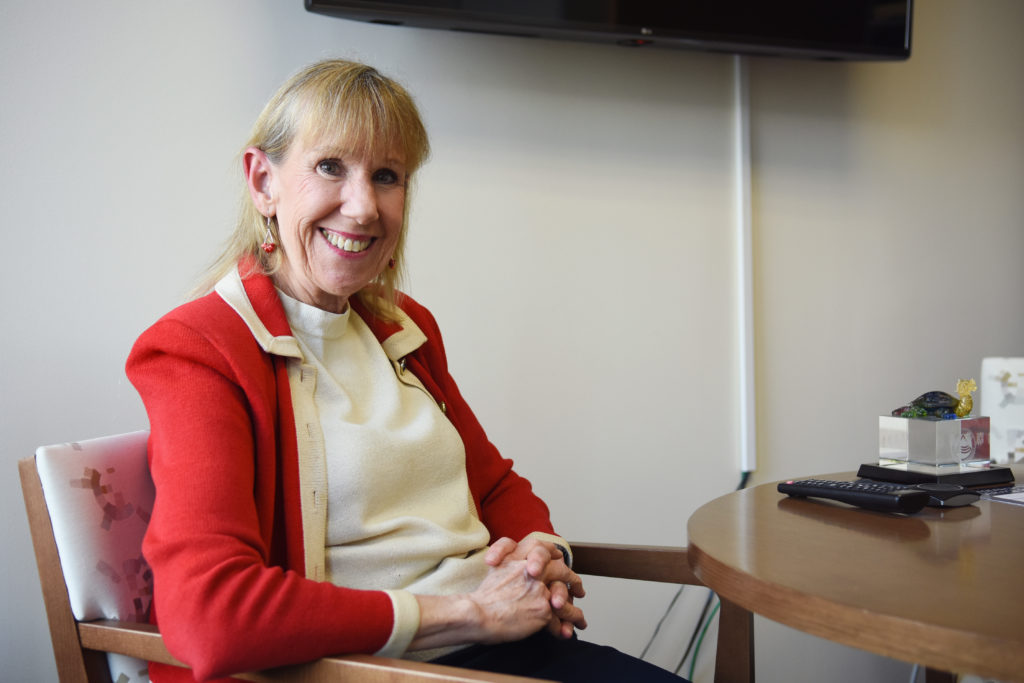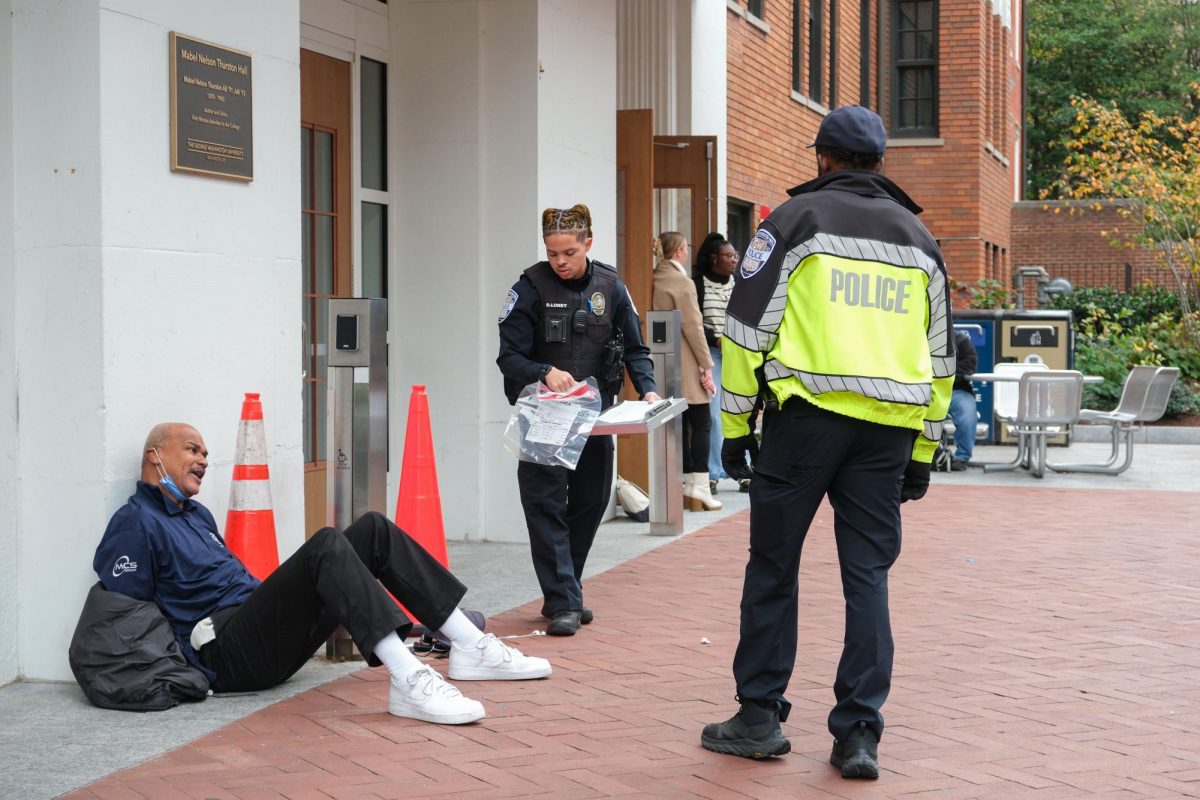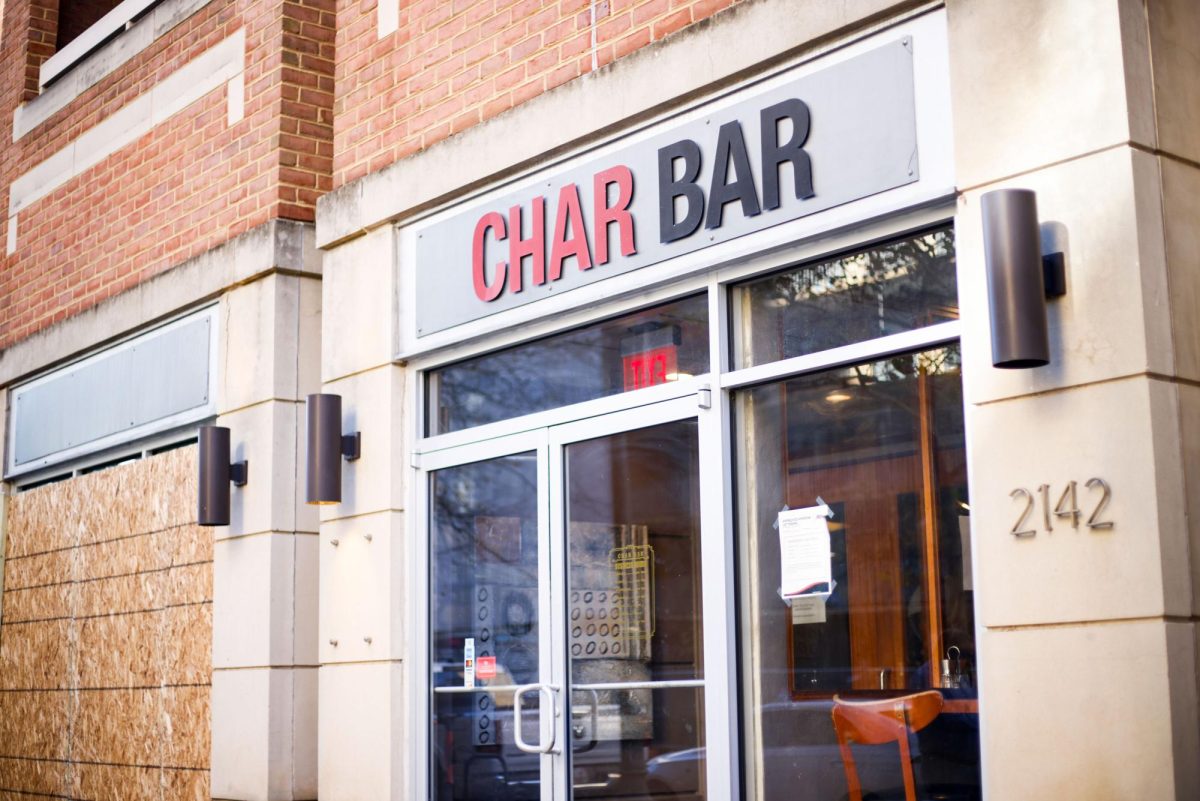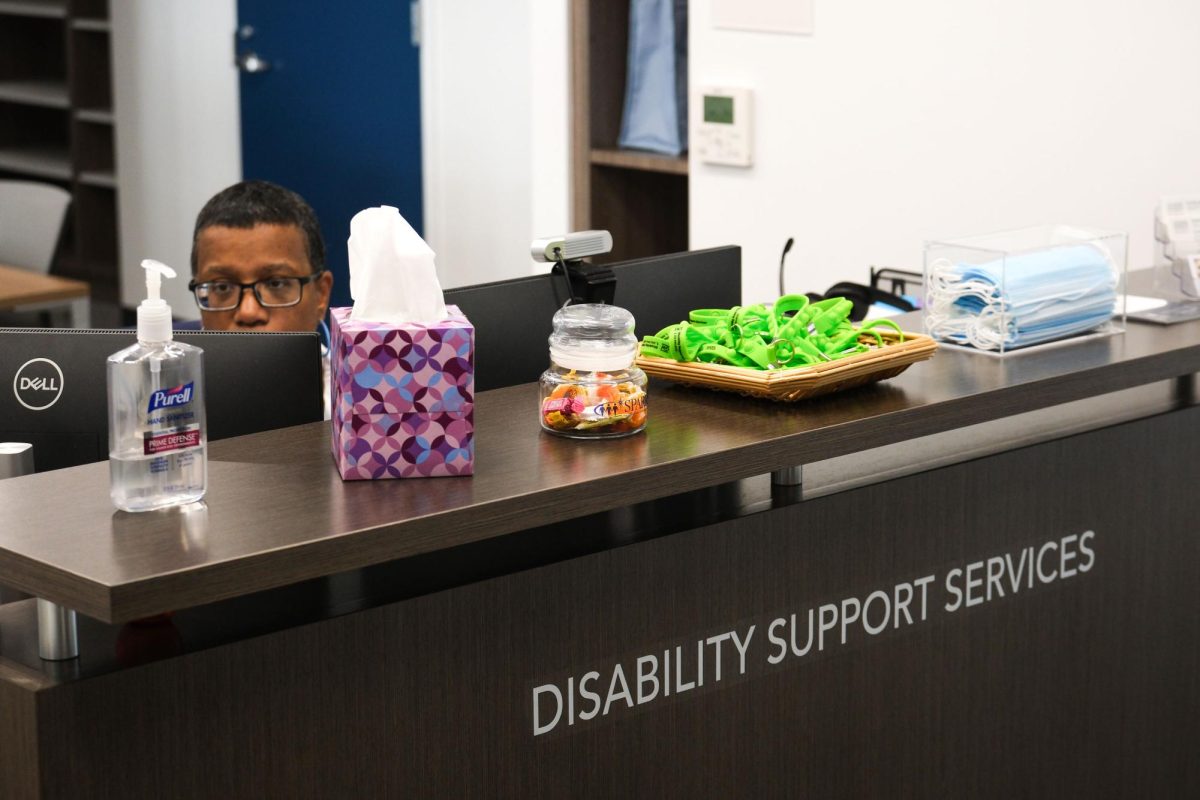After a year of answering student questions and providing tutoring, Academic Commons will increase its offerings to reflect student demand.
Since officials created the hub last summer, more than 3,500 students have utilized tutoring services in different subjects, and more than 2,000 students asked staff located at a help desk in Gelman Library about 5,000 questions, officials said. Geneva Henry, the dean of libraries and academic innovation, said the center will expand its offerings next academic year to address feedback collected from students who used the center in its first year.
“It’s gone beyond my dream of what we were going to do, and it’s worked for everybody – it’s worked for the students, it’s worked for the faculty,” she said. “So I think it’s been a big win.”
Officials developed Academic Commons, located on Gelman’s entrance floor, after a push from Student Association leaders to create a centralized location for academic resources like skills workshops and study spaces.
Henry said the center’s tutoring services – which are offered for several subjects and courses like math and statistics – are one of the most widely-used resources at the center. Academic Commons employed 90 undergraduate and graduate students as tutors this semester, she said.
Henry added that, based on faculty feedback about library tutoring services, staff will introduce a series of workshops next fall to help students develop their studying skills. The workshops will help students understand and remember difficult ideas in addition to the tutoring currently offered.
“It’s sort of a chicken egg thing, right?” she said. “You’re not getting the concepts, but if your study skills – if you don’t know the best ways to study – then the concepts are going to be even harder.”
Henry said library staff held nine feedback sessions throughout the academic year for students to assess the performance of Academic Commons. Staff also asked students to fill out evaluation forms and spoke with faculty to provide feedback to tutors, she said.
Based on the feedback, she said the center will pilot a program this summer called GRE Together to support students studying for the Graduate Record Examination, a test for graduate school applicants. The project will consist of weekly review sessions and proctored practice exams for students and alumni who do not want to pay a third party for tutoring services, Henry said.
“They don’t want to go and have to pay like a private tutor or one of these companies that does it,” she said. “So they’ve asked, ‘Is this not something we can do?’”
Henry said the staff at the center also aim to provide students with access to cameras and other equipment to produce high-quality multimedia projects. She said students outside of the School of Media and Public Affairs often struggle to acquire the tools needed to create videos for classes.
Experts on academic resources said officials should continue to collect feedback to ensure Academic Commons is on the path to success.
Sue Bierman, the director of the Altshuler Learning Enhancement Center at Southern Methodist University, said the center could use focus groups to determine which resources have the highest demand and why other areas are not frequently utilized.
“On both ends of the spectrum, you can utilize focus groups to answer the question ‘Why?’” she said in an email. “The most interesting group to me are the students who came to the center once but didn’t return – why not?”
She added that using the feedback they have collected, officials can develop better marketing strategies that help students understand what resources the center can provide to them.
Adam Sterritt, the assistant vice president for student life leadership at the University of Alabama, said academic resource hubs typically help drive improved graduation and retention statistics. Because these statistics do not improve quickly, Academic Commons staff should gather feedback through other means to improve their performance, Sterritt said.
Officials have said GW’s graduation and retention rates have increased in recent years because of improvements to the student experience, like a revamp of the financial aid office and multiple increases in dining dollars.
“You can look back at goals – why students thought the space was necessary – and at least evaluate whether or not you met some of those goals,” Sterritt said.





